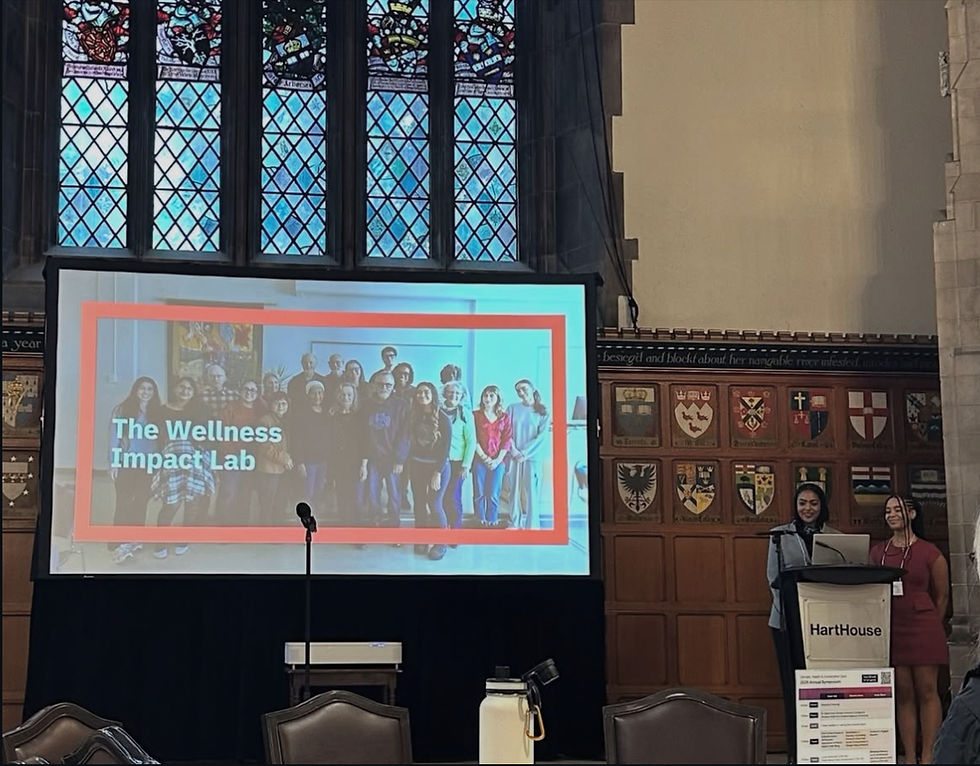Climate Cafés & Young Women: Understanding Emotions, Building Resilience
- Nov 10, 2025
- 2 min read

Across university campuses, climate anxiety is quickly becoming a defining mental health challenge—especially for young women. Many report feeling overwhelmed, fearful, or powerless when thinking about the climate crisis, yet few have spaces where these emotions can be openly expressed.
At the Wellness Impact Lab, we’ve been working to change that.
Climate Cafés at York University create supportive environments for students to reflect on their climate emotions, strengthen community connections, and break the “climate of silence” that so many young women experience. These gatherings are not about activism or debate—they’re about care, conversation, and emotional grounding.
This research highlights how different Café formats influence emotional connection and climate engagement among young women.
About the Project
Over the past year, our team hosted 11 Climate Cafés across campus—7 in-person and 4 online.
A total of 73 students participated, and 78% were women, many attending a Climate Café for the very first time. Before and after each session, participants reflected on:
How climate change makes them feel
How comfortable they are discussing climate issues
Whether they feel motivated to take climate-friendly actions
What emotional support the café provided
To better understand women’s experiences specifically, our analysis focused on 41 female participants. Using Latent Class Analysis (LCA), we identified two meaningful profiles that revealed how differently women experience both emotions and environmental behaviours.
Participation & Demographics

Emotional Experiences
Our analysis revealed three key insights into how young women experienced Climate Cafés at York University.
In-person cafés created deeper emotional connection
Women who participated in person described feeling more supported, more hopeful, and more emotionally grounded. These sessions fostered a stronger sense of belonging and encouraged greater engagement in climate-friendly behaviours such as donating, using local products, and making sustainable lifestyle changes.
Online cafés revealed heavier emotional responses
Virtual participants more frequently reported anger, sadness, and emotional fatigue, alongside lower engagement in pro-environmental actions. These findings suggest that online formats may not offer the same depth of emotional connection for young women navigating climate-related distress.
Climate Cafés helped break the “climate of silence”
Regardless of format, Climate Cafés helped reduce isolation and encouraged open conversation. After attending, women expressed greater comfort discussing climate change, a stronger willingness to talk about climate emotions, and an increased sense of feeling understood, validated, and less alone.
Even a single session helped shift emotions from isolation → connection → community.
Why This Matters
Young women consistently report stronger emotional impacts from the climate crisis—but they are also powerful agents of community, empathy, and resilience.
This project highlights that emotion-focused, community-based interventions—like Climate Cafés—can play a meaningful role in supporting mental health, reducing eco-anxiety, and encouraging pro-environmental action.
It also shows that in-person support is especially valuable for helping participants feel heard, grounded, and connected.
Project Leads & Acknowledgements
Katherine Newman
Sophia Bryan-Carbonell
Susan Harris (Faculty Supervisor)
Dr. Harvey Skinner (Faculty Supervisor)
Presented at the Canadian Psychological Association Conference, St. John’s, Newfoundland (2025).
.png)



Comments